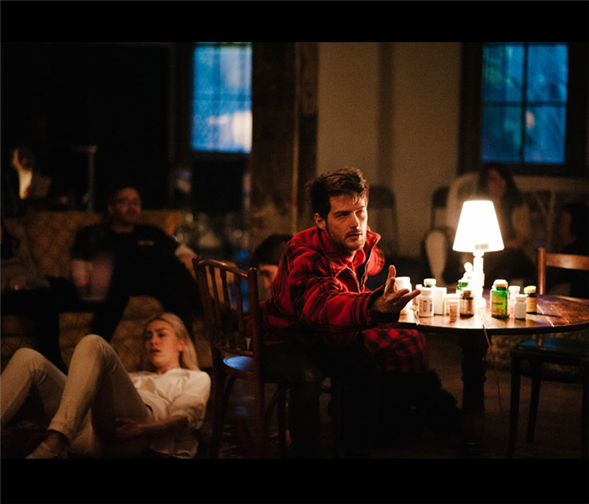Translate Page

Inside a wildly playful attack on Uncle Vanya
---
If New Saloon's wildly playful Minor Character: Six Translations of Uncle Vanya at the Same Time teaches you anything about making theatre, perhaps it is this: Once you make your concept, it might be best to break it.
New Saloon were developing another Chekhov project when they happened upon the idea for Minor Character, which runs from June 18 to 25 at The Invisible Dog Art Center in Brooklyn. At one point in that earlier show, three actors each found themselves using a different translation of Uncle Vanya to deliver the same monologue at the same time. Chaos ensued.
The company loved watching their Chekhovian science experiment go boom, and director and New Saloon co-founder Morgan Green recalls a collaborator joking, "What if we did an entire play that way?"
Wait a minute. Would that work? And would Uncle Vanya be the right play?
The company thought hard about these questions and came to view Uncle Vanya as Chekhov's most intimate and relationship-driven drama. After all, it does take place in a secluded country manor, peopled by a small cast of in-laws and close acquaintances. Romances simmer, and characters struggle to communicate; they either fail to speak their love or succeed and get rejected. A mash-up of many translations, reasoned New Saloon, would jell with the drama's interest in the disastrous endeavor that is human communication. So, what may have started as a joke became the project's sturdy underpinnings.
Treating the concept like a matchbook and a can of kerosene, New Saloon light a fire that becomes a raging conflagration. Sparks fly in Act One with each actor playing one character and firing off three translations of every line. Act Two begins to blaze as three performers play a single character, simultaneously speaking dialogue from three separate translations. As Act Three explodes -- hearts are broken and shots fired -- the troupe captures the chaos by melding five translations together, one of them supplied by the embarrassingly (or lyrically?) inaccurate Google Translate. Eventually, when Uncle Vanya comes unhinged, no fewer than ten performers speak his lines.
The flames finally die down in Act Four. Each actor plays one character, using a single new translation penned by Milo Cramer, a co-founder of New Saloon.
{Image1}
The madness erupts from a careful consideration of the play's dramaturgy. Before Act One of Uncle Vanya opens, several guests have arrived at the country manor and ruined the inhabitants' routines. By Act Three, "there's a sense that the play breaks itself," says dramaturg Elliot Quick, noting that the company's production does the same when all those people are speaking Vanya's lines. "Our conceptual approach actually break[s] itself to a point that you have to return to normalcy," he says. This choice reflects the ending of the play; some degree of normalcy will return to the country estate after the disruptive guests take their leave in Act Four.
This "return to normalcy" enables New Saloon to tap into the melancholy of the drama. Uncle Vanya, who claims he could have been a Schopenhauer or a Dostoevsky if he had spent his days differently, must in the end make do with an unfulfilling life. Act Four's one translation/one-actor-per-character staging chimes with this somber note. As performer and New Saloon co-founder Madeline Wise puts it: "At the end of the day -- and at the end of the play -- you can only be one person. And you are never going to be able to contain all the multitudes you wish you could. In the end, you're stuck with your own body and your own mind, and you're stuck with one language."
---
Gavin Whitehead is a writer and dramaturg based in New Haven.
Photos by Eileen Meny